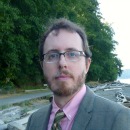Page 167 • (3,717 results in 0.045 seconds)
-
Faculty SupportStudents cite the quality of the faculty as a primary reason for choosing PLU over other universities. A strong endowment will enable the University to attract and sustain an energized and productive faculty by offering competitive salaries, maintaining the faculty at an optimum size, and supporting best-in-class teaching and research. Endowment funds enrich the academic experience for students by providing support for endowed professorships, visiting artists and lecturers
-
academic department or division of the university. Named Endowed Academic Departments begin at $5,000,000.Endowed Technology FundA named endowment fund may be established to provide annual income restricted to the expansion and upgrading of PLU’s computer and other instructional technology as part of the university’s commitment to offer the latest in technological advances to its students and faculty. Named Endowed Technology Funds begin at $500,000.Endowed Research Fund(s) in an Academic DisciplineA
-
Why Study Anthropology? If you think anthropology is limited to the study of stones and old bones, think again! Quick Facts Archaeological Research Students built upon archaeological research following museum partnership, summer dig in Roche Harbor. Read More Why Study Anthropology? If you think anthropology is limited to the study of stones and old bones, think again! Quick Facts Anthropology: The Study of Humanity If you think that anthropology is limited to the study of stones and old bones
Professor Bradford Andrews, ChairXavier Hall, Room 142 12180 Park Ave S Tacoma WA 98447 -
technical undergraduates who might one day support the workforce in both talent and leadership. Interested applicants have the opportunity to apply for internships specializing in various composite and materials research at five IACMI partner locations across the United States. Eligibility Requirements: Be a United States citizen Be a student in good standing at a regionally accredited U.S. college or university Have a minimum cumulative GPA of 3.2 or the equivalent as verified by updated transcripts Be
-

Dave Song, Ph.D. Assistant Professor of Chemistry he/him/his Phone: 253-535-7555 Email: dysong@plu.edu Office Location: Rieke Science Center Website: https://www.plu.edu/chemistry/research/song/ Curriculum Vitae: View my CV Professional Video Education Ph.D., Chemistry and Chemical Biology, Harvard University, 2024 A.M., Chemistry and Chemical Biology, Harvard University, 2014 B.S., Chemistry and Molecular & Cellular Biology, University of Illinois at Urbana-Champaign, 2010 Selected
-

in China and East Asia, with a focus on Buddhism. In his research he specializes in the intellectual and institutional history of Chinese Buddhism during the modern period. He has studied Buddhist responses to elements of modernity, such as the discourses surrounding both religion and modern science. His first book, The Science of Chinese Buddhism: Early Twentieth-Century Engagements, was published in 2015 by Columbia University Press. He has published articles in the Chung-Hwa Buddhist Journal
-

teaches about religion in China and East Asia, with a focus on Buddhism. In his research he specializes in the intellectual and institutional history of Chinese Buddhism during the modern period. He has studied Buddhist responses to elements of modernity, such as the discourses surrounding both religion and modern science. His first book, The Science of Chinese Buddhism: Early Twentieth-Century Engagements, was published in 2015 by Columbia University Press. He has published articles in the Chung-Hwa
-

teaches about religion in China and East Asia, with a focus on Buddhism. In his research he specializes in the intellectual and institutional history of Chinese Buddhism during the modern period. He has studied Buddhist responses to elements of modernity, such as the discourses surrounding both religion and modern science. His first book, The Science of Chinese Buddhism: Early Twentieth-Century Engagements, was published in 2015 by Columbia University Press. He has published articles in the Chung-Hwa
-
endowed chair. Additional support from these initial donors, plus support from Dale and Jolita Benson and other new gifts brought the endowment to the chair level of $2 million. The endowment funds supplemental salary for the Mayer Chair, research and travel related to scholarship, enhanced library resources, student-faculty research fellowship opportunities, coordination of the annual Lemkin Student Essay Contest and the Lemkin Lecture (named for Raphael Lemkin, who coined the term , as well as the
-
obscured nation-building agendas, and why opposition to asylum seekers from Central America today may not be so anomalous to our immigration history.Dr. Mae NgaiSpeaker: Mae Ngai is Lung Family Professor of Asian American Studies and Professor of History at Columbia University, whose research and teaching focuses on the histories of migration, citizenship, race and ethnicity. She is author of the award-winning Impossible Subjects: Illegal Aliens and the Making of Modern America (2004), and The Lucky
Do you have any feedback for us? If so, feel free to use our Feedback Form.


